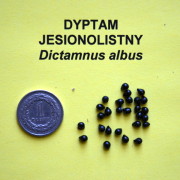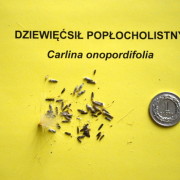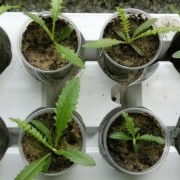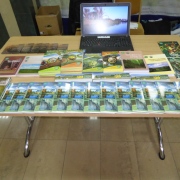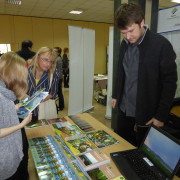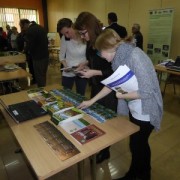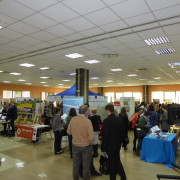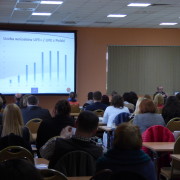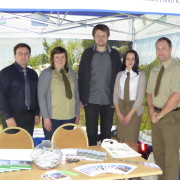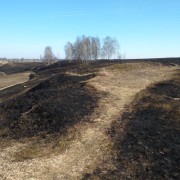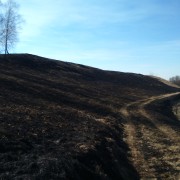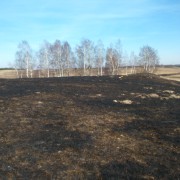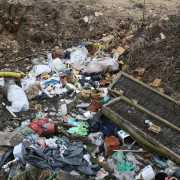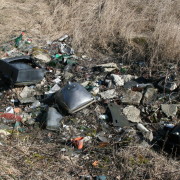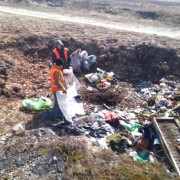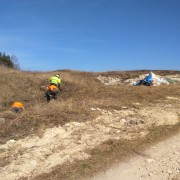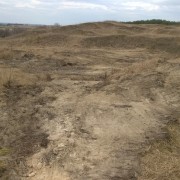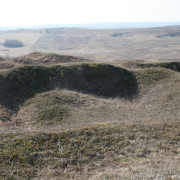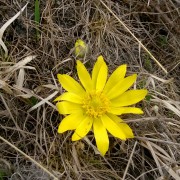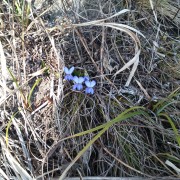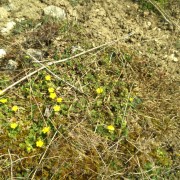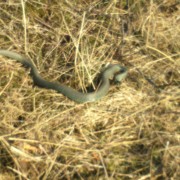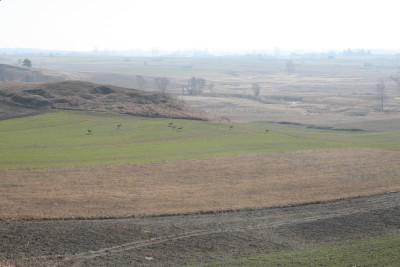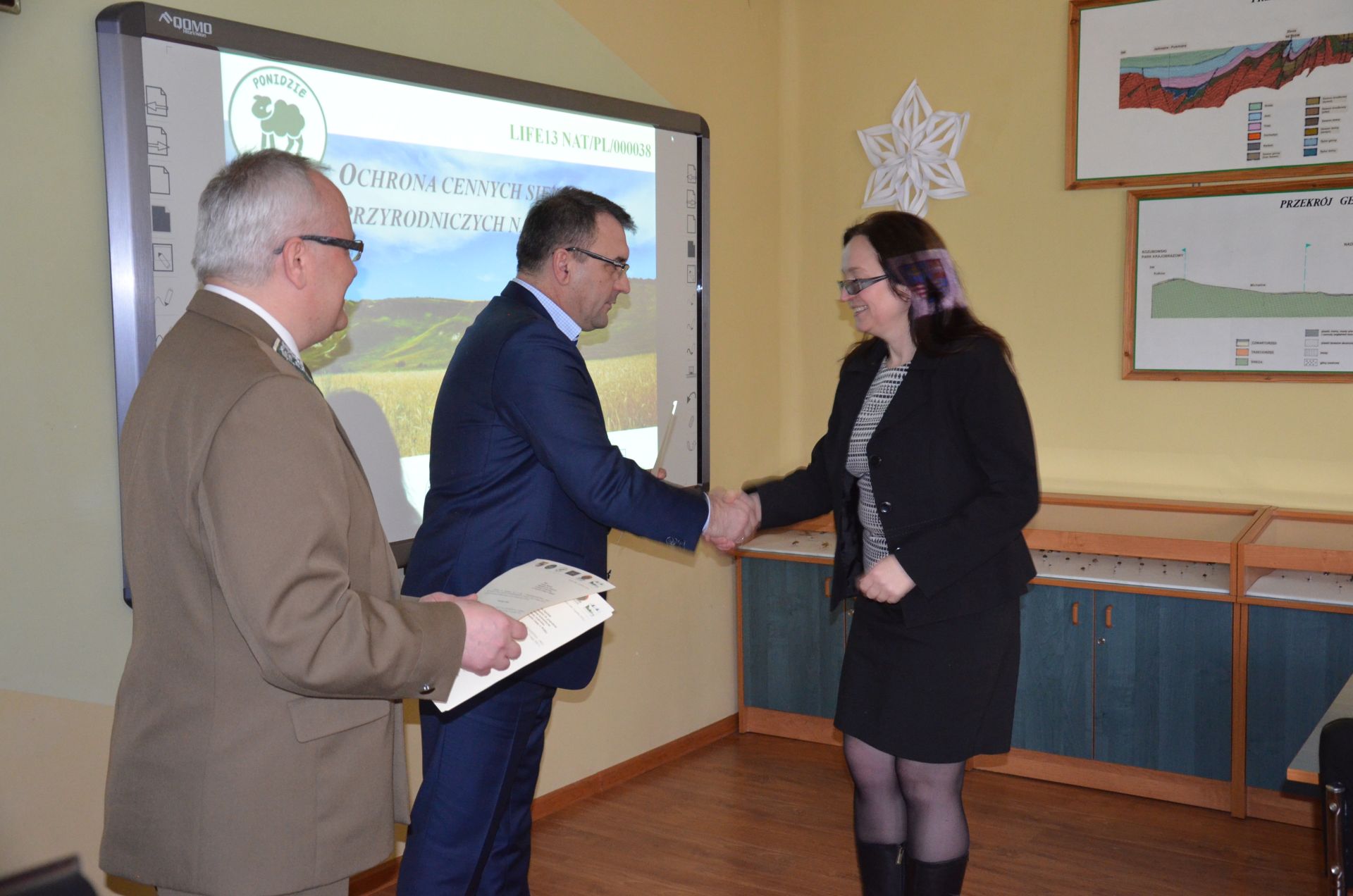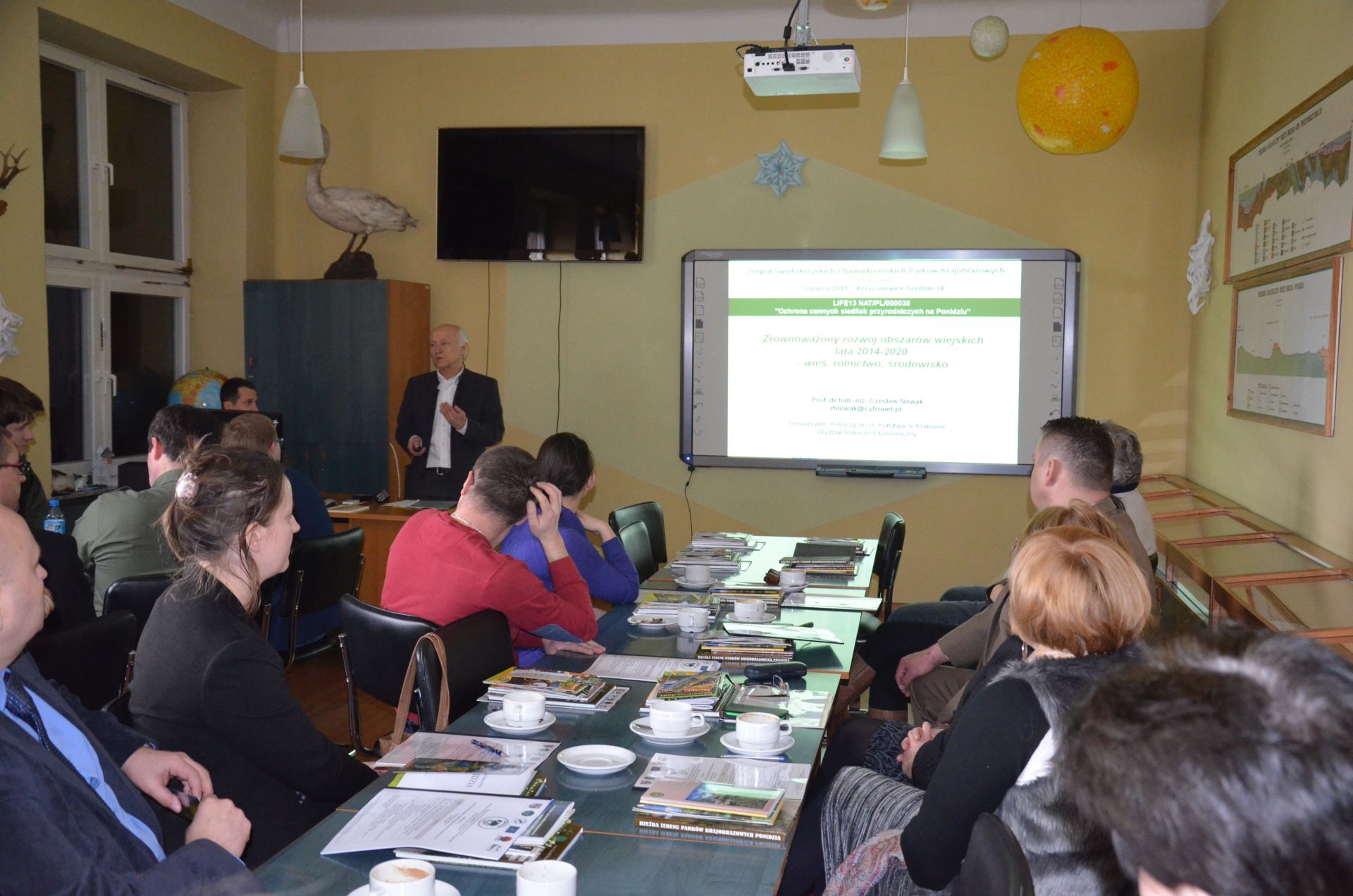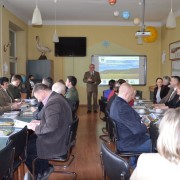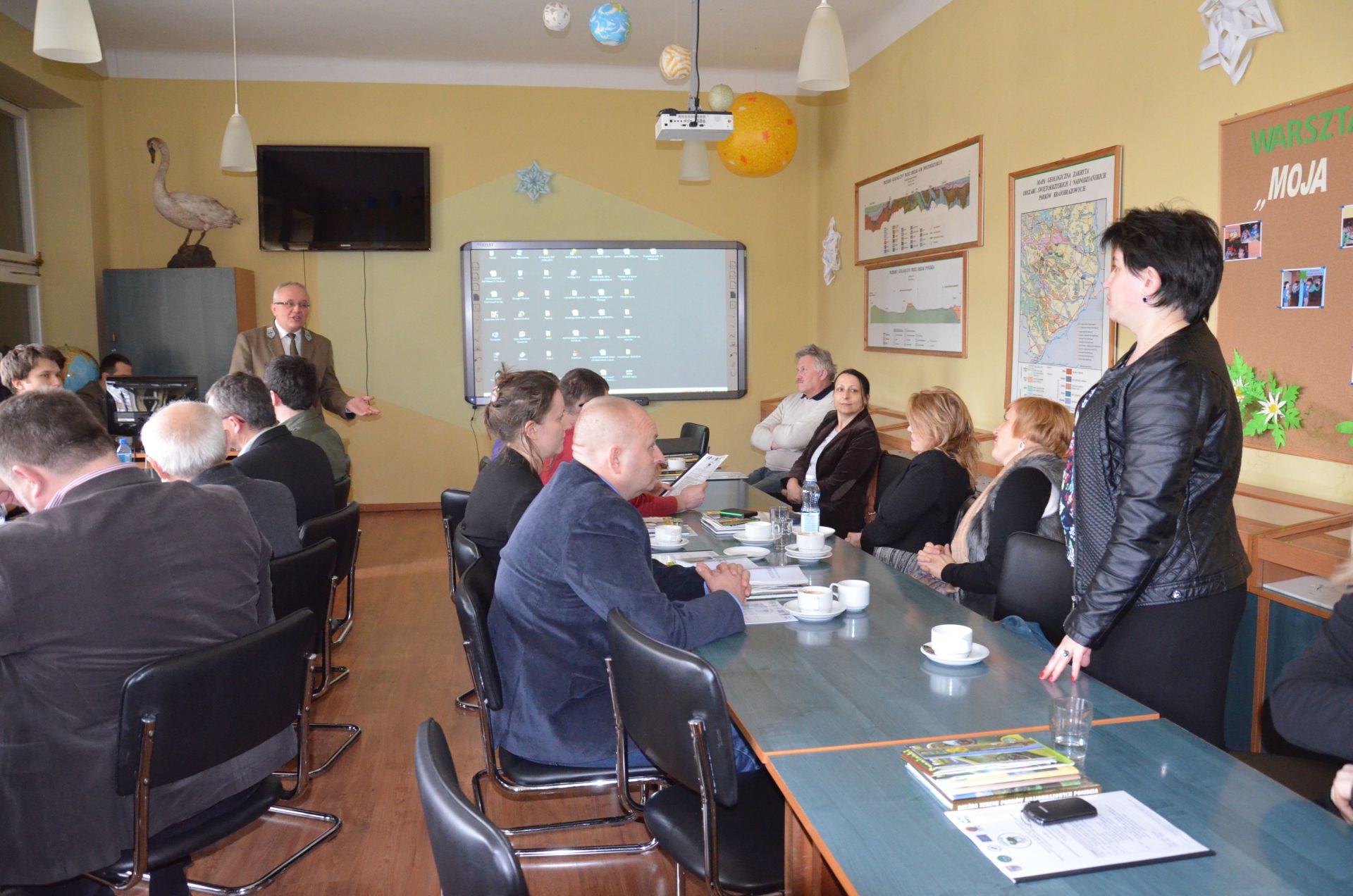Dominik
Ex situ conservation as a means of protecting rare plants in Ponidzie
Preparations to create a seed orchard in our head office in Krzyżanowice Średnie are underway. Within it, six very rare vascular plants selected for active protection as well as other species characteristic for Ponidzie will be planted. The first seeds have already been sown so as to get seedlings for planting in the orchard. This experiment has proven successful in case of Carlinaonopordifolia whose seedlings develop rapidly. On the other hand, the seeds of Dictamnusalbus have been undergoing cold stratification. The seeds harvested from the plants grown on the plantation will be sown in situ, in appropriate locations, so as to strengthen the population of rare, native species.
Face to face with nature – time to start the environmental monitoring.
In the beginning of May began the environmental monitoring conducted by experts from the Centre for Research and Environmental Control in Katowice. It aims to confirm the beneficial effects of the active protection treatments on the condition of selected natural habitats of high environmental value.
The first few dozens of transects for phytosociological research have been laid out and many rare species of flora and fauna typical for xeric grasslands (Campanula bononiensis, Lithospermumofficinale, Veronica austriaca and Noneapulla, among others), sandy, thermophilic, inland grasslands (Androsaceseptentrionalis, Valerianella sp., among others) as well as inland halophytes and thermophilic oak forests (Mellitismelissophyllum, Tanacetumcorymbosum, among others) have been found. Areas have been laid out, where trees and shrubs shading the habitats are planned to be cut down. The next phase of research will begin in the last week of May.
Ponidzie on Earth
Ponidzie na Ziemi
LIFE Information Day.
On 14th April 2015 a conference titled „DzieńInformacyjny LIFE” („LIFE Information Day”) organised by the National Fund for Environmental Protection and Water Management took place in Warsaw. It was mainly aimed to introduce to LIFE Programme individuals and institutions willing to apply for funds in future calls. The conference program also included presentations by LIFE+ beneficiaries, which reflected beneficiaries' experience of the implementation process of their projects and discussed emerging problems and ways of solving them. At the same time, at designated stands, presentations of individual LIFE+ projects took place.
Grass burning – a threat to environment
Unfortunately, the activity of grass burning, our country’s annual problem, has become increasingly common in spring. The persistence of a trend of inconsiderate torching of withered grass produces a death toll of insects, amphibians, reptiles and rodents which are killed directly; it also indirectly results in deaths of larger animals, namely: ducks, partridges and pheasants which are forced to search for new nesting sites. During the process of grass burning the entire microflora and microfauna is killed, and as a result – the soil impoverishes and its exposed surface becomes susceptible to erosion. Areas affected by grass burning remain lifeless deserts for many years as all life forms inhabiting them get destroyed. Threats to humans stem mainly from hazardous effects of smoke originating from the burning as well as directly from the fire. IT NEEDS TO BE REMEMBERED THAT GRASS BURNING IS AN ENVIRONMENTAL CATASTROPHE.
The clearing of illegal waste dumps in Ostoja Stawiany.
The human – as part of the ecosystem – is linked to other beings through a network of connections and relationships, which is why we should remember that „Nature can survive without humanity but humanity without nature will perish”. On 26th March 2015 on plots located in the town of Stawiany (Kijemunicipality) which were covered by the project, work was completed involving clearing illegal waste dumps from the area of grasslands. Clearing rubbish will contribute to the increase in the landscape value and will serve as a practical example of education in preventing the littering in the areas of high environmental value.
First signs of Spring in Ponidzie…
Following the winter rest, nature awakens and spring begins to mark its presence. First signs of the most beautiful of seasons have appeared in Ponidzie. Adonis vernalis, viola rupestris and potentillaneumanniana have already begun to bloom. Spring is also noticeable in the animal world. Grass snakes can already be seen basking in sunshine in OstojaStawiany. Let us remember that grass snake is a protected species of a non-venomous snake.
The first meeting of the Steering Comitee of LIFE13 NAT/PL/000038 Project.
On 3rd March 2015 in the head office of the Complex of Ponidzie and Świętokrzyskie Region Landscape Parks in KrzyżanowiceŚrednie a meeting of LIFE13 NAT/PL/000038 „The protection of valuable natural habitats in Ponidzie” Project Steering Comiteetook place. In the beginning of the meeting Piotr Żołądek – a member of ŚwiętokrzyskieVoivodship Board presented nominations to persons appointed to the Steering Committee and then the Chairperson of the Steering Committee and two Deputies were elected. The Chairperson of the Steering Comittee: ElżbietaKucięba. The Deputies: Robert Pacholec, JanuszZieliński. Later during the meeting a team for implementation of LIFE project presented a report on the progress of work and then the invited researchers from the University of Agriculture in Krakow – professor Czesław Nowak and assistant professor Edyta Molik gave lectures on sustainable rural development for 2014-2020 – village, agriculture, environment and on biological and environmental factors affecting the adaptation of sheep to grazing.
Training in settlement of LIFE contracts with National Fund for Environmental Protection and Water Management funds.
On 10th February 2015 in the head office of the National Fund for Environmental Protection and Water Management in Warsaw atraining in settlement of grant agreements funded by the National Fund for Environmental Protection and Water Management and targeted at LIFE+ Financial Instrument’s beneficiaries took place. The speakers at the meeting were the staff of the Department for LIFE + Programme and a representative of an external monitoring team for LIFE + projects. The meeting was organised in order to familiarise the beneficiaries with procedures and requirements concerning the scope of the accounting documentation required to be submitted to the National Fund for Environmental Protection and Water Management and to the European Commission. The staff of the Complex of Ponidzie and Świętokrzyskie Region Landscape Parks implementing the LIFE+ project took the opportunity to exchange experience and information on the topics presented and also to get acquainted with the problems of other units carrying out similar projects.













